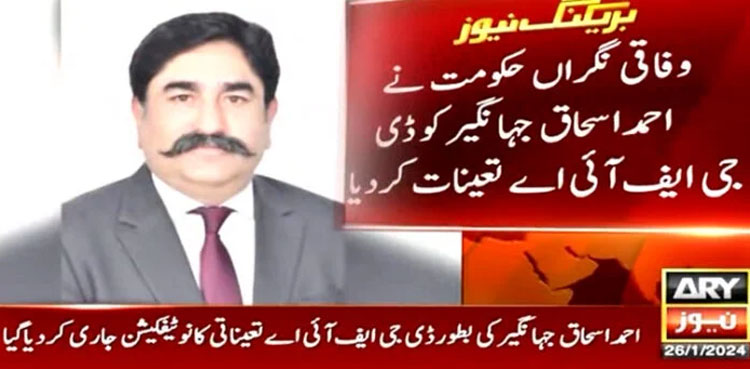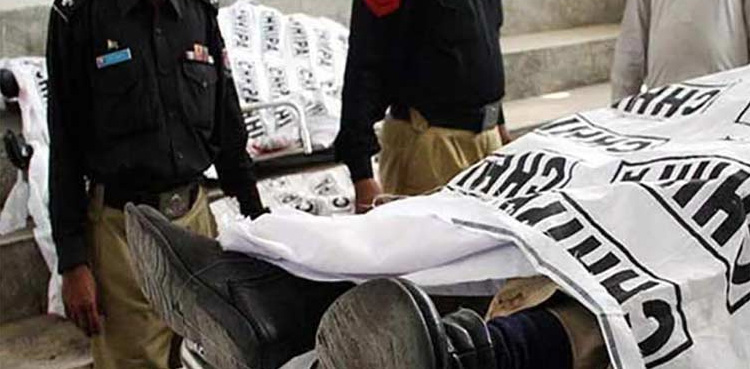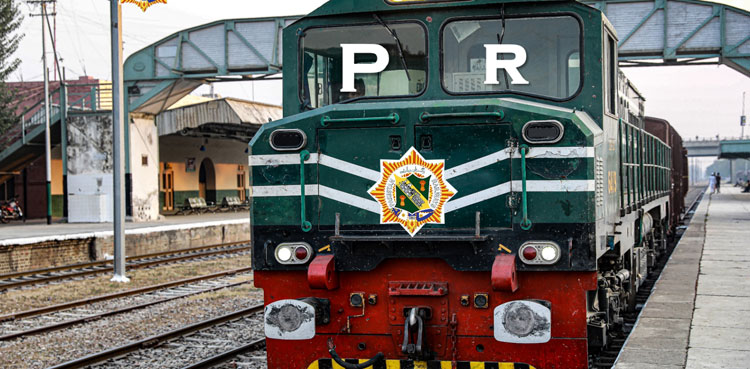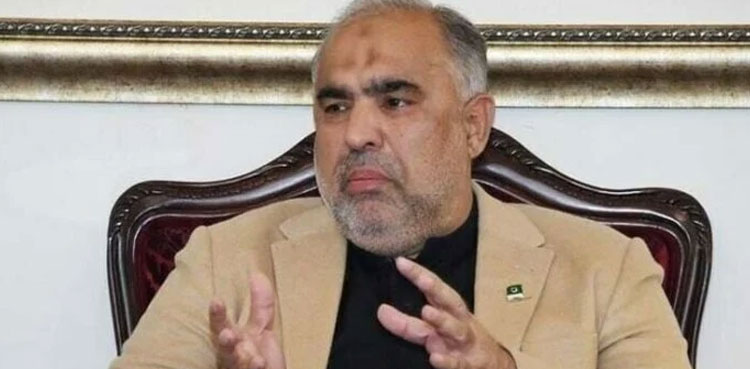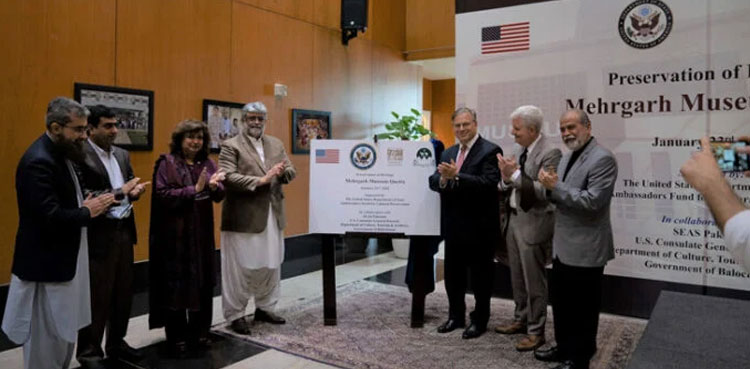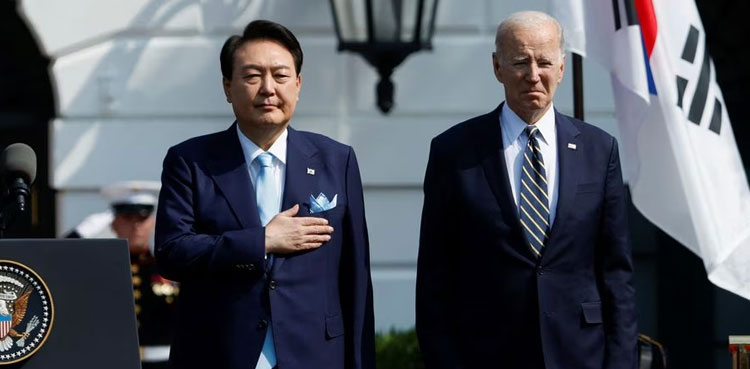
WASHINGTON: The United States on Wednesday pledged to give South Korea more insight into its nuclear planning over any conflict with North Korea amid anxiety over Pyongyang’s growing arsenal of missiles and bombs.
The announcement, which included a renewed pledge by Seoul not to pursue a nuclear bomb of its own, emerged from White House talks between US President Joe Biden and South Korean leader Yoon Suk Yeol that covered issues including North Korea, semiconductor chips and trade, and the Ukraine war.
At a joint news conference, Yoon said he and Biden had agreed on steps to strengthen South Korea’s defenses in response to the threat posed by North Korea.
“Our two countries have agreed to immediate bilateral presidential consultations in the event of North Korea’s nuclear attack and promised to respond swiftly, overwhelmingly and decisively using the full force of the alliance, including the United States’ nuclear weapons,” Yoon said.
Biden reiterated the US offer to North Korea to hold talks over its nuclear and missile programs, which has been ignored by North Korean leader Kim Jong Un.
North Korea’s mission to the United Nations did not respond to a request for comment.
DETERRING NORTH KOREA
North Korea’s rapidly advancing weapons programs – including ballistic missiles that can reach US cities – have raised questions about whether Washington would really use its nuclear weapons to defend South Korea under what it calls “extended deterrence.”
Opinion polls in South Korea show a majority want Seoul to acquire its own nuclear bombs, a step Washington opposes.
Under a new “Washington Declaration,” the US will give Seoul detailed insights into, and a voice in, US contingency planning to deter and respond to any nuclear incident in the region through a US-ROK Nuclear Consultative Group, US officials said.
Read more: Japan puts military on alert fearing North Korean missile
Washington will also deploy a ballistic-missile submarine to South Korea in a show of force, the first such submarine visit since the 1980s, U.S. officials said.
But Biden made clear that no US nuclear weapons would be stationed on South Korean territory.
“I have absolute authority as commander in chief and the sole authority to use a nuclear weapon, but … what the declaration means is that we’re going to make every effort to consult with our allies when it’s appropriate, if any action is so called for,” he said.
A “WIN” FOR SOUTH KOREA?
The agreed steps fall short of what some in South Korea have called for and are “unlikely to either persuade North Korea off its current course of WMD development and testing or to quiet the debate inside South Korea about its own nuclear future,” said Jenny Town of the Washington-based North Korea monitoring group 38 North.
Sue Mi Terry of the Wilson Center think tank saw the move as largely rhetorical and “a fig leaf” to dissuade South Korea from going nuclear.
“That’s what this is about,” she said. “But it remains to be seen if Korean public opinion will be satisfied.”
Terry said any resumption of nuclear bomb testing by North Korea for the first time since 2017 would increase alarm in South Korea and calls for its own nuclear arsenal – or for redeployment of US tactical nuclear weapons in the country.
Even so, increasing Seoul’s involvement in nuclear deliberations should allow Yoon to argue to his domestic audience that Washington is taking Seoul’s concerns seriously.
Duyeon Kim, an analyst with the Center for a New American Security, called the Washington Declaration “a big win for the alliance and especially for South Korea.”
She said one of the most notable developments was that the two sides were gaming out scenarios including a US nuclear response, whereas in the past this had been considered too classified to share.
from ARY NEWS https://ift.tt/Q5blugV
